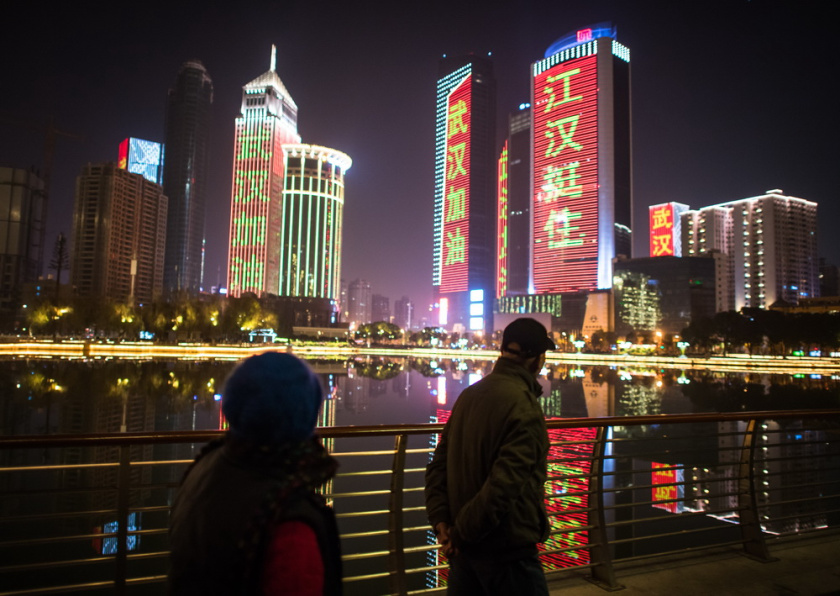———— Release time:2020-03-19 Edit:INERI Tony Fu Read:100 ————
On 9 February 2020, the article of Mr. Tony Fu, CEO of Hong Kong International New Economic Research Institute, was published in China Report ASEAN. The full text is as follows.

The 2020 Spring Festival is certainly one that won’t be forgotten considering a viral respiratory disease caused by a novel coronavirus broke out in China. To prevent the disease from spreading rapidly, the 31 provinces, municipalities and autonomous regions on the Chinese mainland have enacted the country’s highest level of public health emergency response.
Viruses are a common enemy of mankind. While all affected countries adopted necessary preventive measures, some countries including Singapore, Japan, South Korea, Russia and Pakistan have provided emergency aid to China’s affected areas. In this unprecedented battle, the international community has acknowledged China’s efforts to protect the health of its citizens through ever-improving capabilities in emergency response and management as the epidemic has evolved and praised every endeavor the Chinese government has made to prevent the epidemic from spreading worldwide.
At a February 3 meeting on prevention and control of the pneumonia epidemic held by the Standing Committee of the Political Bureau of the Communist Party of China (CPC) Central Committee, Chinese President Xi Jinping stressed that “the outcomes of the epidemic prevention and control directly affect people’s lives and health.” Indeed, since the epidemic began, protecting safety and health above all else has remained a consensus shared by all authorities and departments.
Throughout the country, medical workers spared no efforts to treat infected patients. To contain population flow and curb the spread of the coronavirus, the Chinese government resolutely took highly effective preventive measures such as extending the Spring Festival holiday, banning public gatherings and reducing transportation flow in major cities. Soon after the virus was first detected in Wuhan, China released information on its genome sequence, allowing scientists from around the world to quickly launch clinical trials, share data and accelerate studies on related viruses. To meet the urgent need for medical supplies such as masks and disinfectant, many domestic manufacturers launched interim mechanisms to operate 24 hours a day to increase production. By mobilizing forces from all sectors, China built Huoshenshan (Fire God Mountain) Hospital, a 1,000-bed makeshift hospital dedicated to the disease, in a record seven days, which was followed by another called Leishenshan (Thunder God Mountain) completed in 15 days. Alongside the two emergency hospitals, “cabin” hospitals have also been built and are now treating patients in Wuhan, the epicenter of the epidemic. Many of the effective and targeted measures taken to prevent the spread of the contagion can be attributed to China’s experience fighting SARS in 2003 which left the government highly sensitive about the health, wellbeing and safety of its population.
So, the outbreak has been a major test of China’s system and capacity for governance. China’s emergency management has constantly improved as a tough battle against the outbreak has raged on. Before the climax of the crisis can pass, the Chinese government must still pass tests of emergency management, public health services and national reserves. Thanks to experience from the campaign to combat SARS, China established a comprehensive modern emergency management system focused on natural disasters, accidental disasters, public health crises and social security incidents.
The emergency management system had just completed transformative reform when the novel coronavirus struck China. Despite some public criticism and controversy surrounding Wuhan authorities’ early response, most of China’s emergency departments responded extremely fast. After the outbreak of the epidemic was apparent, the Chinese government took the most comprehensive and strict prevention and control measures, many of which far exceeded International Health Regulations. As World Health Organization (WHO) Director-general Tedros Adhanom Ghebreyesus put it, “China has set a new standard for countries around the world in epidemic prevention and control.” Many countries have complimented China’s performance in the fight against the epidemic. South Africa, Pakistan and Cambodia pledged to take WHO advice of abandoning unnecessary restrictions on international travel and trade to reduce panic.
Upholding a strong sense of mission and responsibility, China has gone all-in on curbing the spread of the virus beyond its borders and safeguarding global health. On February 6, the WHO announced the launch of a Strategic Preparedness and Response Plan to prevent further spread of the novel coronavirus outbreak in China and worldwide. As of that morning, 25 countries including China had confirmed coronavirus cases. Clearly, the new virus has become a global challenge.
After the first cases were discovered in Wuhan, Hubei Province, in December 2019, China immediately reported to the WHO, relevant countries and regional organizations, set up a hotline to provide information about the epidemic for foreign nationals living, working, studying and traveling in Hubei, and published epidemic updates and prevention knowledge in English, French, German, Russian, Japanese, Korean and Spanish on official websites and the WeChat account of the foreign affairs office of Hubei provincial government. State authorities such as the Ministry of Foreign Affairs and the National Immigration Administration joined many local governments in issuing public letters to foreign expats living in China and providing epidemic-related information.
“We need facts, not fear,” asserted Tedros Adhanom Ghebreyesus when talking about the epidemic. “We need science, not rumors. We need solidarity, not stigma.” Unity among countries is key to preventing the virus from further spreading. Certainly, humanity will soon prevail over the novel coronavirus outbreak after joint efforts from forces around the world.